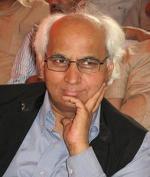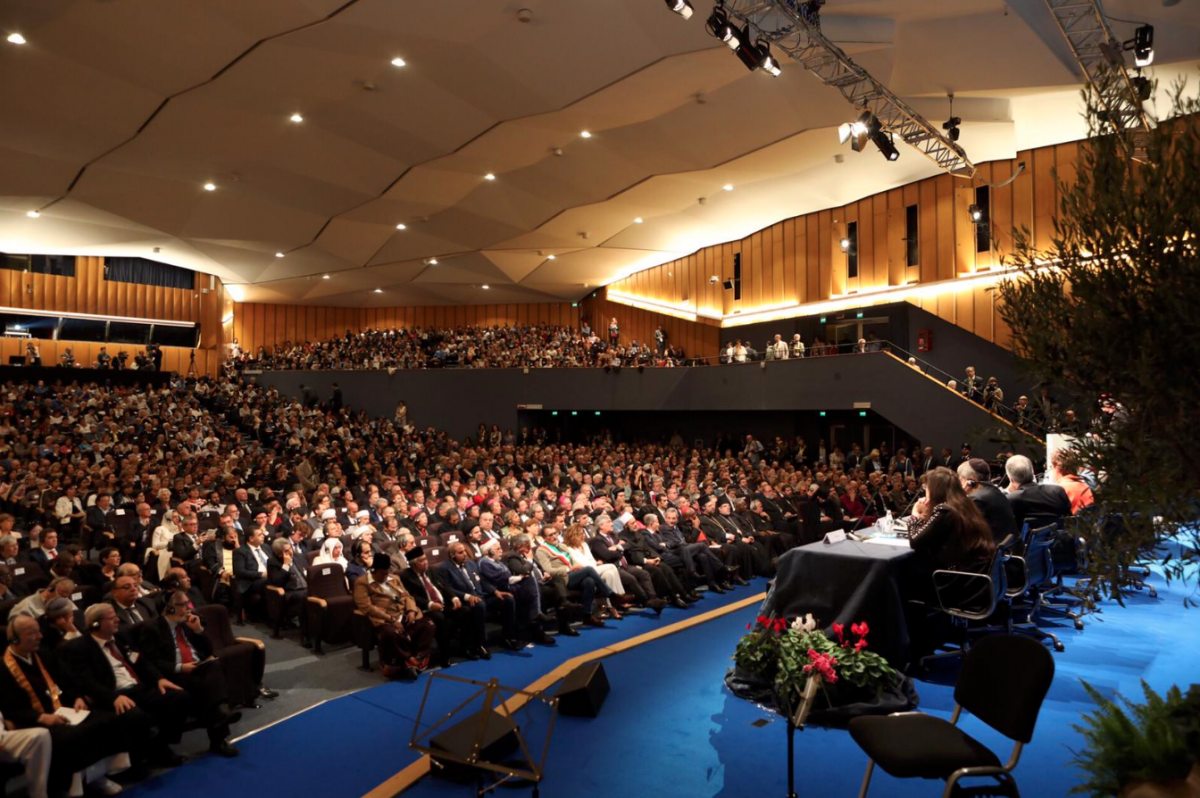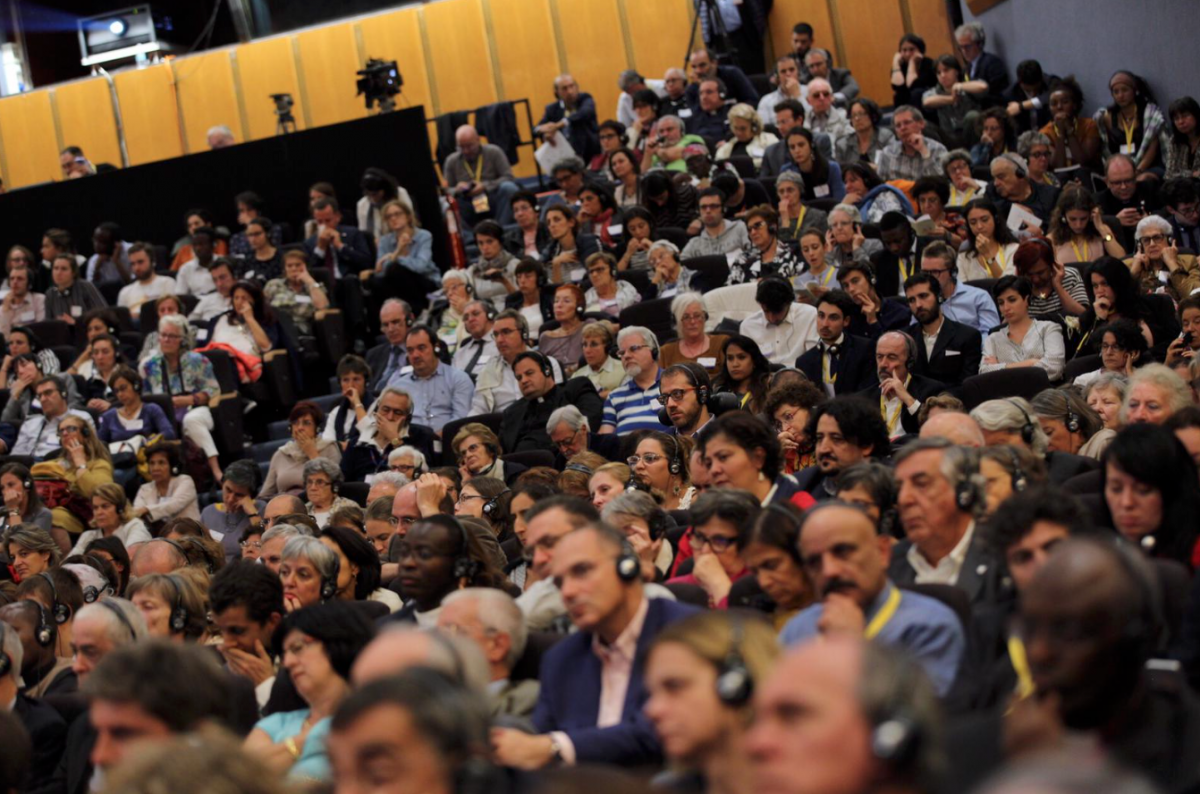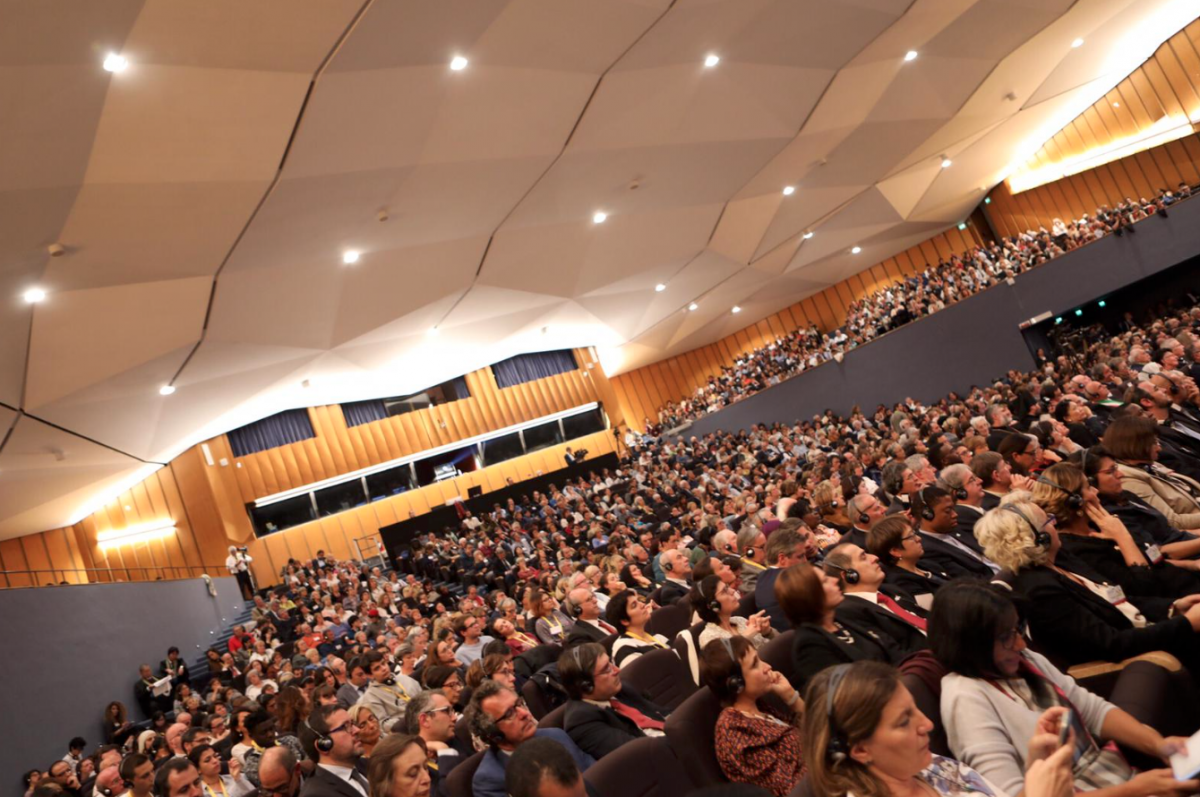
Prof Andrea Riccardi, other dignitaries and eminences on the dais, distinguished participants in this conference representing various religions and countries, ladies and gentlemen,
Please accept hearty greetings from a representative of Hinduism, one who has come from India, the land of the Buddha and Mahatma Gandhi.
I represent a platform called ‘FORUM FOR A NEW SOUTH ASIA’.
Its principal aim is to promote India-China-Pakistan cooperation to create a peaceful and prosperous future for the most populous region in the world, home to over 1.7 billion people.
I thank the Community of Sant’Egidio for giving me the opportunity to share my reflections with you in this enchanting city of Bologna.
Friends,
How can one describe the times we live in?
True, we are not living in the best of times.
But we are not living in the worst of times, either.
Our era is hovering between the good and the bad.
It is full of bright spots and opportunities, but also replete with crises and ominous threats.
Let’s first look at the bright side.
Our world has experienced a prolonged period of relative peace after the end of the Second World War.
The time difference between the conclusion of the First World War and the beginning of the Second World War was only two decades.
Now, more than seven decades have passed, and there are no signs of a Third World War breaking out.
In spite of some localised wars, some of them horrendous, our world has remained largely peaceful ─ which is not a mean achievement.
With peace has come its sweet fruit ─ prosperity.
The world has witnessed levels of prosperity and progress in people’s living conditions never before seen or imagined at any time in human history.
In my own country, India, as many as 270 million poor people have been lifted out of poverty in the decade between 2005 and 2016, according to a recent study by the United Nations Development Programme (UNDP).
Of course, we still have unacceptably high levels of poverty and poor human development indicators in India. But, overall, the living conditions of a large number of Indians has improved.
The same is also true about many other countries in Asia, Africa and Latin America.
* * *
Dignitaries and Eminencies,
Why then is there so much disquiet in the world today? Why is there so much uncertainty about the future? Why are we palpably sensing that our world is not quite in a good condition of health, harmony and happiness?
There are three fundamental reasons for this.
And these three reasons tell us why we need to build three new types of BRIDGES OF PEACE, which is the theme of this year’s inter-faith conference.
First, even though the human race has achieved a lot of progress ─ of course, a minority has garnered a far bigger pie of the cake than the majority ─ this prosperity is mostly of the materialistic kind.
Our overall cultural, social, psychological and spiritual development is still stunted.
Maybe, to some extent, the human species has even undergone a reverse evolution in this respect.
God has given human beings a unique gift ─ an inner universe, which is as infinite as the outer universe.
Yet, man in modern times is living too much in the outer world, and too little in his own inner world.
The health of man’s inner world is the only real source of our happiness.
And the noise of the outer world has more or less filled his inner space, crowding out his time and energy for introspection, imagination, meditation, self-healing and self-evolution.
Therefore, for peace in the world, and for peace within ourselves, we need to re-learn the forgotten art of BUILDING BRIDGES OF PEACE not only among communities and individuals, but also between man’s outer life and his inner life.
Here is the second reason for the ill-health of our planet and the planetary population.
A lot of our material prosperity has been achieved at the cost of the environment. As a species, we are guilty of committing an ecological genocide of tens of thousands of other species ─ both plant and animal.
We forget that, for them too, our planet is the only home.
Mahatma Gandhi had warned: “The earth provides enough to satisfy everyone’s need, but not for everyone’s greed.”
Extending his philosophy of nonviolence to the natural world, Gandhi said, “It is an arrogant assumption to say that human beings are lords and masters of lower creatures. On the contrary, we should be trustees of the lower kingdom.”
His Holiness Pope Francis elaborated this philosophy in his landmark encyclical, Laudato si’, in 2015, which urged the global community to focus its attention on the urgent theme: “Saving our Common Home and the Future of Life on Earth”.
In other words, we need to build BRIDGES OF PEACE for the world to move from the Industrial Civilisation to an Ecological Civilisation.
Modern technological advances in energy, materials, manufacturing and transportation, along with Artificial Intelligence, can help us achieve this transition, if they are used wisely.
The third reason for the continuing conflict, discord and discontent in the world is the fetish and menace of nation-states.
The modern concept of the nation-state has built artificial walls of division separating human communities and cultures ─ even creating unhealthy competition and rivalry, accompanied by the costly arms race, among them.
A stark example is the unending hostility between India and Pakistan.
Of course, nation-states are here to stay for quite some time.
There can be no decree to make them disappear.
However, we should recognise that nation-states as they exist today, and the concept of national sovereignty as it is enforced today, is anachronistic to the growing and unstoppable trend of globalisation.
Technology, trade and travel have shrunk our world into a Global Village, with unprecedented inter-connectedness and inter-dependence.
Thousands of years ago, the Vedas, which are the ancient sacred text of Hinduism, had proclaimed: “Vasudhaiva Kutumbakam”. This saying in Sanskrit means, “The entire world is one united family.”
This vision is now slowly coming true. But we should speed up the process.
As a matter of fact, all countries, communities and individuals have today become digital neighbhours of each other.
Obviously, when we regard the world as One Large United Family, there can be no place for militarism, hegemonism, weapons of mass destruction, and exploitation of one member of the family by the other.
The pain of one part must become the pain of the entire body politic; and the riches of some cannot be on account of the deprivation of others.
Therefore, we need to build new BRIDGES OF PEACE for the human race to travel from conflictual nationalism into a new era of cooperative inter-nationalism.
We have seen the exemplary power of dialogue for conflict resolution and peacemaking most recently in the reconciliation between North Korea and South Korea.
I would like a similar constructive dialogue process to start between India and Pakistan, also between Hindus and Muslims, to end the hostility between our two countries.
Friends,
Strengthening the spirit of global unity does not mean that the diversity of our various identities ─ religious, cultural, ethnic, linguistic ─ should be obliterated. No, not at all.
Human diversity is as intrinsic to God’s design of our planet as Natural diversity.
Both kinds of diversity ─ human as well as natural ─ should be preserved, respected and celebrated.
However, we must never forget that diversity cannot exist without fundamental unity.
When nations, religions and cultures are engaged in mutually respectful and mutually beneficial dialogue and cooperation, in the knowledge of their essential and unbreakable unity as a Human Family, the predictable outcomes are Peace, Justice, Sustainable Development, Harmony and Happiness for all.
This conference calls upon all of us to become devoted builders of these new BRIDGES OF PEACE between today’s fragmented human family and tomorrow’s new and united spiritual civilisation.
Thank you.





